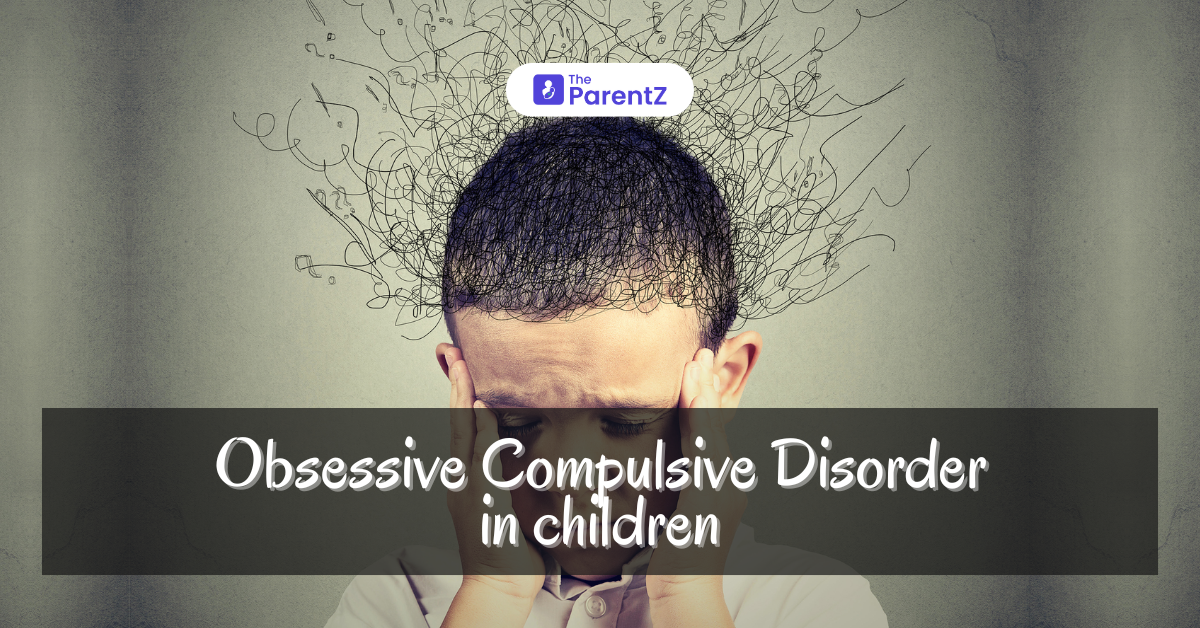What is OCD or Obsessive-Compulsive Disorder?
OCD is a disorder which causes repetitive and upsetting thoughts and urges an to do specific behaviours. Children may worry and have anxiety at times which is completely normal. In a child suffering from OCD, the child feels a need to repeat specific actions even if they do not make sense.
For example they may insist on wearing something specific, else that day will have bad luck. If they do not perform the specific action, they may worry that it will harm themselves or somebody they love. These unwanted thoughts and their behaviours take up a lot of time and interfere with the daily activities making children significantly upset. These repeated thoughts are known as obsession while the behaviours are known as compulsions.
How can I notice OCD symptoms in my child?
Obsessions in a child will be thoughts which come again and again. A child may want to stop thinking about these thoughts but cannot. These thoughts are usually worrisome and bring unwanted anxiety. The child may obsess over-
- Germs which may cause illness
- Dust and Dirt which can lead to allergies
- Themselves or their loved ones falling sick
- Old people dying
- Objects not being arranged properly
- Things which seem wrong or out of place
- Things that do not ‘feel right’
Compulsions in a child will be actions that they perform repetitively. These actions are like rituals for the child which they perform to make things better or stop worrying about compulsions. A child may make any ritual but commonly observed are-
- Arranging things specifically
- Cleaning more than usual
- Washing hands repeatedly
- Walk or skip in set patterns or unusual ways as observed by parents
- Say specific words or phrases repeatedly
How is OCD managed in children?
The first step in management is an evaluation by the health care professional which will determine how severe the symptoms are and if they are associated with any other conditions such as anxiety or depression.
OCD is managed with the help of behaviour therapy and medication. The first and the most important step is behaviour theory which is known as cognitive behaviour therapy. It aims to help children embrace an effective way of thinking. This kind of behaviour therapy may include exposing children to their fears in a safe setting which helps them realize that anything untoward does not occur if they do not give into their compulsions. Sometimes cognitive behaviour therapy alone is enough for management but at other times certain medications can also be prescribed by your child’s doctor.
How can I help as a parent?
A loving and supportive environment for children suffering from OCD can be very helpful. Here are a few tips which you might want to keep in mind if you suspect that your child has OCD or has been diagnosed :
- If you notice that your child performs compulsive behaviours repeatedly, you might want to talk to your child about this. Be calm and explain the situation to the child. You may say something like ‘I have noticed that you do this activity repeatedly; it may be a sign of a disease which can cause significant distress and say that you want to help’
- You should book an appointment with your pediatric doctor who can refer you to a child psychiatrist. They will talk to your child regarding symptoms before coming to a diagnosis.
- Therapy may be recommended for the child suffering from OCD. Therapy for such disorders is known as cognitive behavioural therapy. In this case, be sure that your child does not miss sessions and practice the mindful behaviour taught.
- You should be patient as overcoming OCD is a long process the might be several therapy and doctor visits.
- You should address stress at the family level. It has been noticed that OCD symptoms tend to get worse when a child lives in a stressful environment.
- You should get help yourself as it can be very stressful and tolling to raise a child suffering from OCD. There are several support groups for parents which you can enroll in. Such groups offer comfort as knowing that you are not alone and hearing success story of other parents with similar issues might be a booster.





Be the first one to comment on this story.